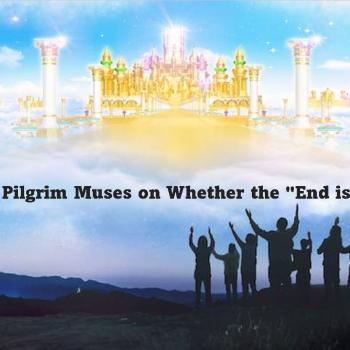Editors' Note: This article is part of the Patheos Public Square on Immigration and Refugees. Read other perspectives here.
One of the lesser-known champions of refugees was John Calvin, that stigmatized Reformer of the 16th century. Under Calvin's leadership, the city-state of Geneva became a haven for refugees fleeing religious persecution, with the population doubling during Calvin's stay alone. Calvin, himself a refugee, knew the terror, loneliness, and disorientation of exile. Recalling his flight from France as a young man, he recollects in a poignant letter to a friend, "I wanted to die to be rid of those fears."
The 16th century was, for Europe at least, an unprecedented period of mass migration. The accompanying tide of anti-immigrant feelings were on the rise as well, and threatened to swamp the continent in a flood akin to that of Noah's day. An ark was needed.
This ark was not in the form of a physical vessel to spirit away those who were facing such tremendous odds. It came in the form of a doctrine that gave believers a sense of identity regardless of physical location or communal approval. The ark to which these refugees flocked was that centuries-old and modernly-confusing belief in election and predestination.
For those who were biblically literate, they found great comfort in identifying with the great refugees of the Bible. It certainly did not escape the notice of these people that the great heroes of the Bible were often on the run. They had been outcasts too, despised, and seemingly un-elect by all measurable standards of their society. And what was the hope in this? It boils down to the fact that the God of Abraham, Isaac, and Jacob self-identified as a God not of a particular place (or temple, or sacred haunt), but of people on the move. Calvin's existential focus was on that unmovable point that, regardless of one's location, could ground him. Home him. On earth, that unmovable point was the portable Scriptures — and the God of these Scriptures. These Scriptures pointed to another home that awaited him and others who had been so mercilessly cast off by society.
As a pastor (who also wore the hat of refugee-crisis-director, coordinating the effort to find food and shelter to people in need), Calvin worked tirelessly to organize the flood of immigrants and give them spiritual direction in their time of transition. Not surprisingly, Calvin's lasting influence was on those who had no home. "Yet for the children of God," Calvin wrote in a letter to a group of English refugees, "who know that they are the heirs of this world, it is not so difficult to be banished. It is in fact even good for them, so that through such an experience they can train themselves in being strangers on this earth." His theology was specifically geared for those who had lost their fatherland, but who had gained a loving Father. A Father would go with his children wherever they landed — America, South Africa, wherever.
So ironically, what we generally see portrayed as arrogant Calvinism today began as an underground movement in refugee congregations. It was a message for the disenfranchised who had lost everything. Its austerity was embraced by those accustomed to the harsh conditions of displacement, and who had experienced the other side of justice. They had a Father. They were the ones who, circumstances notwithstanding, were the chosen of God. They might be scorned today but they were holding fast for a truth that lasted longer than a lifetime, and a homeland that outlasted the beloved land that they had been forced to leave behind.
Exile had radicalized them. They forged new identities, certain even under the most daunting of circumstances that they were led by the hand of God. Every shred of evidence that their opponents seized upon as proof of their having been rejected by God — poverty, isolation, martyrdom — only served to buffer this identity as chosen, rather than erode it. In fact, under such circumstances, it wasn't too hard to believe that God had not only chosen them, but had rejected those in the mainstream who caused such suffering.
From this crisis — both personal and societal — Calvin resuscitated the biblical doctrine of predestination (with his own addition of double-predestination) as a supreme comfort for his society's rejects. Regardless of its caricature today, predestination must be appreciated as a biblically-faithful comfort for the persecuted people of Calvin's day. In fact, this doctrine is perhaps only properly understood by a suffering church. The church today, however, needs to face up to how the tables have turned: more often than not, it serves not to comfort those on the outside, but to put a fence around those on the inside. When it ceases to live in relation to existential life, as Reformation scholar Heiko Oberman reminds us, it can become "distorted beyond recognition."




